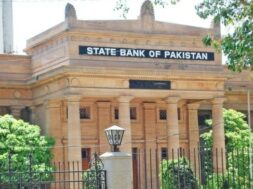
On the brink: Pakistan pays USD 1 bn to avert default
Virendra Pandit
New Delhi: Amidst growing uncertainty about its ability to meet external financing obligations, cash-strapped Pakistan averted a default on Friday on its repayment of USD 1 billion against a matured international Sukuk (Sharia-compliant bond), three days early.
The bond repayment, which matures on December 5, totals USD 1.08 billion. During the week ending November 25, SBP reserves stood at USD 7,498.7 million. It has since received USD 500 million from the Asian Infrastructure Investment Bank.
The media reported on Saturday that, as per schedule, Islamabad was to return the maturing investment in the US dollar-denominated global bond on December 5.
“Yes, we have made the payment of USD 1 billion,” State Bank of Pakistan (SBP) spokesperson Abid Qamar said. The bank made the payment to Citigroup, New York, which would transfer the funds to the investors.
Earlier, the risk of default—measured through a 5-year credit default swap (CDS)—hit a record high of 123 percent last month, building strongly on the perception that Pakistan would not arrange the payment amid its low foreign exchange reserves. CDS is an insurance derivative that covers the risk of default on the repayment.
Experts, however, said this was an ill-liquid and low-volume traded derivative. A little trade in CDS had built a wrong perception of default on the repayment.
Finance Minister Ishaq Dar, his predecessor Miftah Ismail, and SBP Governor Jameel Ahmad reiterated Pakistan would not default on any of its international payments and make all payments as per schedule.
“It has more than the required foreign currency reserves,” Ahmad said last month.
The perception about Pakistan’s likely default formed when Sri Lanka defaulted on its global bond repayments in April after its foreign exchange reserves diminished. The nation faced an acute shortage of medicines, petroleum products, and foods, as well as a political crisis.
Comparing Colombo with Islamabad on the repayment capacity, an expert said Pakistan had a small share of 7-8 percent of its total foreign debt through floating international bonds like Eurobond and Sukuk.
The rest of the foreign debt was commercial, multilateral, and bilateral, which can be and has been rolled over from time to time.
Sri Lanka had gained over half of its foreign debt through floating international bonds, which cannot be rolled over and repayment was required to avoid default.
Pakistan is under the International Monetary Fund’s (IMF) USD 6.5 billion loan program, which is like a guarantee against default on international payments.
Islamabad arranged the required financing worth USD 32-34 billion from international creditors for the ongoing fiscal year (July-June) 2022-23. This includes a USD 21.1 billion debt and financing the current account deficit and improvement in foreign exchange reserves.
Saudi Arabia extended the period of its deposits worth USD 3 billion at the State Bank of Pakistan on Friday when Islamabad paid off the USD 1 billion debt.
The SBP Governor said they have arranged additional foreign exchange and thus, the repayment of USD 1 billion would not impact foreign exchange reserves.
The country’s foreign exchange reserves are depleted to a critically low level of nearly USD 7.5 billion because of the repayment of maturing debt and financing the current account deficit regularly.
This is barely enough for a five to six-week import cover. The reports said the reserves had stood at USD 20 billion in August 2021.













